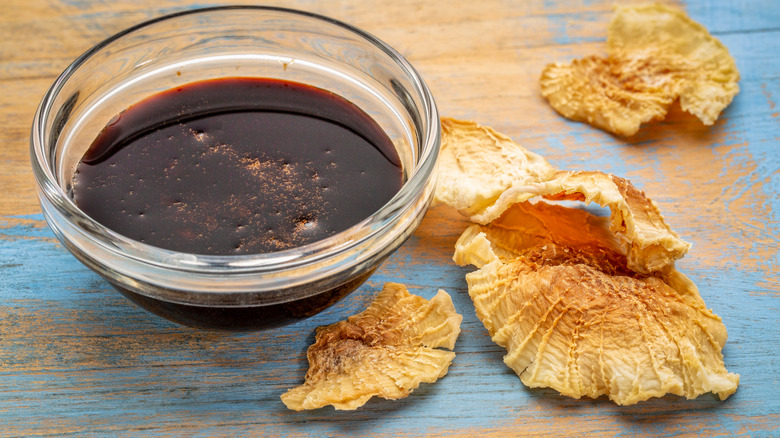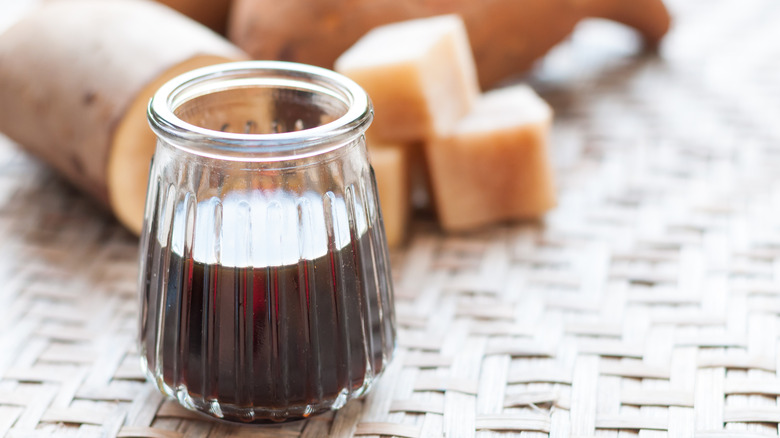What Is Yacon Syrup And What Is It Used For?
For decades, folks have always shown interest in finding new ways to maintain a healthy weight and shed a couple of pounds (if need be). A CBS report details how Americans have had a slight obsession with losing weight that can be traced back over 150 years. Before things like the keto diet filled the airwaves, there was the low-carb diet that was invented by William Banting in 1863. His diet called for the elimination of things like carbohydrates, dairy, sugar, and alcohol, and asked folks to indulge on "loads of meat."
While depriving oneself of so much has been noted as a somewhat unfavorable behavior, folks (and the diet industry) have found other creative ways to create a caloric deficit while not losing the flavor of their meals. Trying to cut out sugar? According to Today, you'll find things like monk fruit, stevia, coconut sugar, and yacon syrup. While most people are familiar with monk fruit, stevia, and coconut sugar, yacon syrup may seem a bit more exotic. What is it exactly and can it actually help with losing weight?
While yacon syrup has some properties that can aid in weight loss, the science is still unclear
Yacon syrup is derived from the yacon plant roots, per Healthline, and is something natively grown in the Andes mountain range in South America. The publication notes that it was long believed that the plant held medicinal properties that would aid in the overall decrease in diabetic symptoms or chronic digestive issues. Yacon syrup is a dark, sweet tasting liquid with a texture that mirrors that of molasses. But, how is it good for you?
According to Good Morning America, yacon syrup carries soluble fibers that provide the body with gut-friendly bacteria that is often tied to things like immunity and anti-inflammation. The outlet notes that because parts of the yacon syrup aren't digestible they cannot be absorbed by the body and thus have a reduced caloric intake. Healthline details that about 100 grams of yacon syrup are roughly about 133 calories. Because of its sweetness, Today explains that it can be used on pancakes, yogurt, in smoothies, or as a sugar substitute when baking. But, as with all things, it is good to take this in moderation. Healthline reports that while short-term results have been noteworthy, science has yet to prove what the long-term benefits are.

